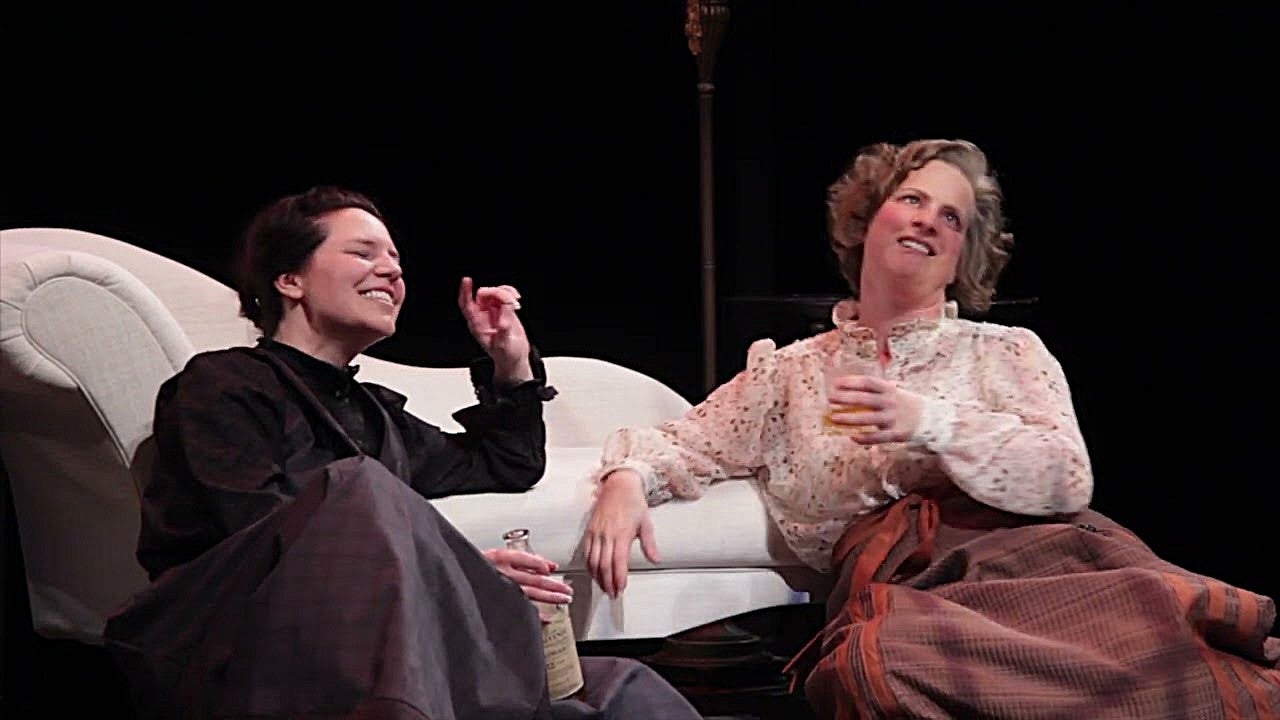The state Senate voted today to remove the heads of Wisconsin’s Ethics and Elections commissions from their posts. We get the details. A theatrical piece based on poetry written by formerly incarcerated women will be performed in Appleton this week. We hear from two people involved in the production. We also look at how local National-Park-Service-maintained sites are faring with maintenance backlog, learn why makeup can still be important to female inmates.
Featured in this Show
-
State Senate Moves To Oust Ethics And Elections Heads
The State Senate voted today to remove Mike Haas, head of the state’s Elections Commission, and Brian Bell, administrator for the state’s Ethics Commission, from their posts. WPR’s Capitol Bureau Chief shares the details.
-
National Park Service Maintenance Backlog Includes Apostle Islands
The National Park Service has reportedly $11 Billion in maintenance backlog including the Apostle Islands National Lakeshore. We take a closer look at the historical importance of Apostle Islands with two lighthouse experts.
-
New Production Shines Spotlight On Incarcerated Women's Experiences
A new theater production is bringing the experiences of incarcerated women to the stage.
“The Power of Grace” from Still Point Theatre in Chicago gives formerly incarcerated women the opportunity to share their stories through poetry they both write and perform, but it’s also a transformative experience for the audience, said Mars Caulton, facilitator for the theater and a teaching artist for Grace House, a transitional home in Chicago for formerly incarcerated women in Illinois.
“I think we tend to have a ‘them’ and ‘us’ kind of viewpoint when we think about people who have been through the prison system,” said Caulton. “When we start hearing some of these stories we start finding pieces that connect to what we’ve gone through in our lives.”
The cast is performing Saturday at the Fox Valley Unitarian Universalist Fellowship in Appleton.
Heather Rivett, a cast member in the production, has experienced this first hand. She was incarcerated for two years.
“It’s very emotional,” Rivett said. “But working with Still Point and learning how to put it into a new light, it’s been fun.”
The production stems from the Persephone Project, part of a collaboration between Still Point Theatre and Grace House. It has been running for the last several years, with this year’s production featuring work that was written during the spring of 2017.
Before joining the program, public speaking was one of Rivett’s worst fears, but after working with Caulton, Rivett found it to be empowering.
“You never know who you’re going to help sharing experiences because people who have been through stuff (experiences) … might be afraid to talk about it,” Rivett said. “It’s not so much the difference but the similarities that you share with people.”
The women worked together weekly for four months, exploring different themes and working both independently and as a team. At the end of the program, they put together a finale to the show that combined the work of more than 12 people into a single poem.
“I think this is one of the greatest kinds of gifts we can offer people,” Caulton said.
Not only does it help them find new ways to express themselves and speak up for themselves, but it teaches them to work as a team.
“When you’re performing in an ensemble, there is a lot of teamwork and skill involved,” Caulton said. “These are skills that will transfer to people’s ability to return to families they’ve been separated from perhaps, or return to jobs and communities a stronger individual.”
-
'The Power Of Grace' Brings Voices Of Incarcerated Women To The Stage
A new theater production is putting a spotlight on the experiences of women in prison. A cast of formerly incarcerated women will be taking the stage in Appleton on January 27th to perform “The Power of Grace,” featuring their own stories and poetry. We talk to an organizer of the show and a cast member about what they hope audiences will take away.
-
Why Makeup Still Matters To Women In Prison
While YouTube is populated by videos of various beauty hacks, women in prison have gone so far as to use the dyed red threads holding their uniforms together to make a sort of blush for their cheeks. Our guest says giving female inmates access to beauty products has positive results.
Episode Credits
- Rob Ferrett Host
- Judith Siers-Poisson Producer
- Natalie Guyette Producer
- Dean Knetter Producer
- Shawn Johnson Guest
- Danielle Kaeding Guest
- Ken Wardius Guest
- Barb Wardius Guest
- Heather Rivett Guest
- Mars Caulton Guest
- Marlen Komar Guest
Wisconsin Public Radio, © Copyright 2026, Board of Regents of the University of Wisconsin System and Wisconsin Educational Communications Board.

